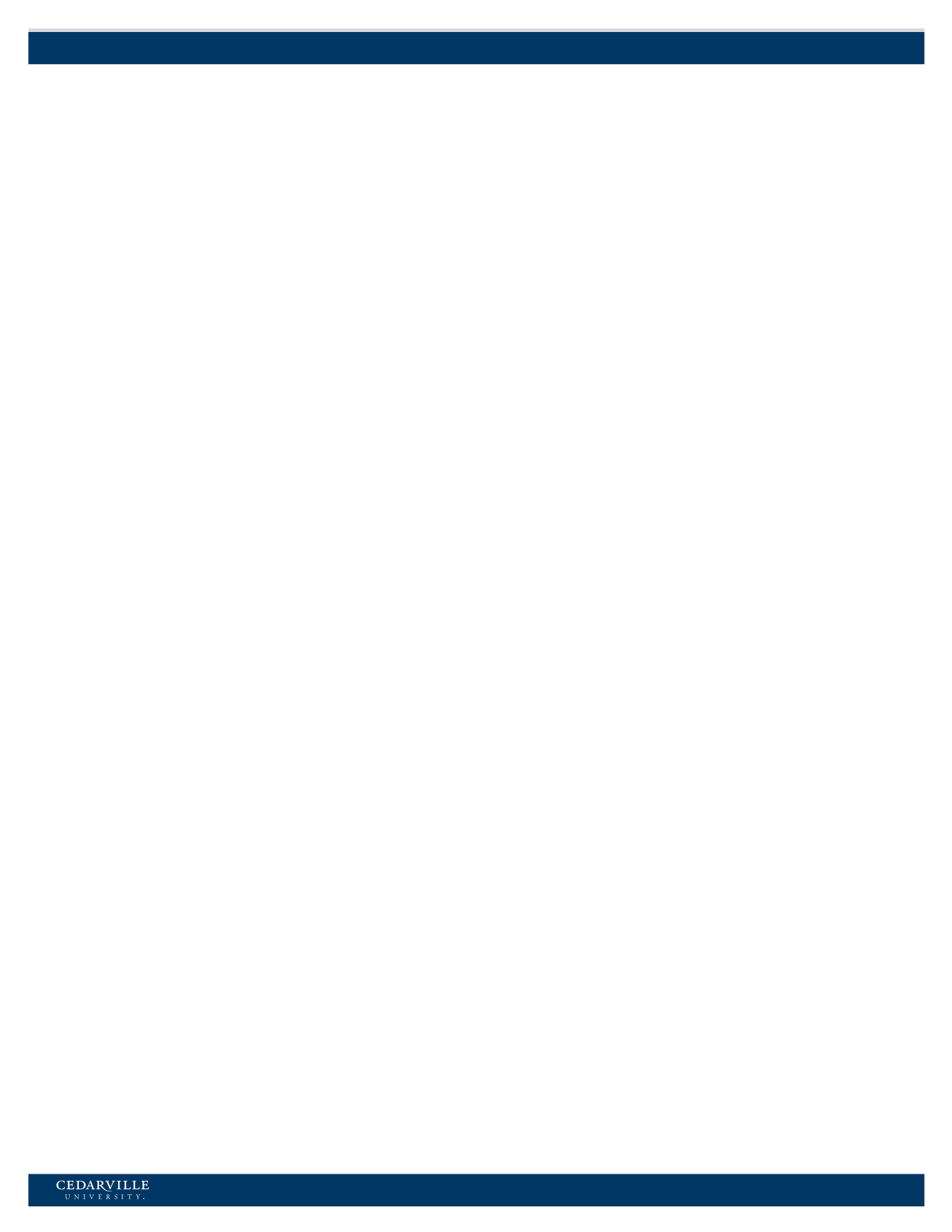
Page
53
2013–14 Graduate and Adult Programs Academic Catalog
Graduate-Level Course Descriptions
PHAR-7353 – PHAR-7482
PHAR-7353 Leadership and Business Module
3 hours
This course will focus on developing the knowledge and
skills necessary to successfully manage the business of
pharmacy in various models/settings (e.g., privately owned
and chain community pharmacies; hospitals/health systems),
including entrepreneurship, business planning, human resource
management (including employee candidate interviews),
pharmacy operations, product/service pricing and reimbursement
and business marketing. Further, models of leadership will be
reviewed and related skills will be cultivated. Prerequisites:
P3 in good standing in the School of Pharmacy; PHAR-6110
Introduction to Pharmacy Practice; PHAR-6112 Introduction
to Self Care; PHAR-6121 Pharmacy Practice Lab I; PHAR-
6122 Pharmacy Practice Lab II; PHAR-6150 Drug Information
and Informatics; PHAR-6171 Introductory Pharmacy Practice
Experience I: PHAR-6172 Introductory Pharmacy Practice
Experience II; PHAR-6273 Introductory Pharmacy Practice
Experience III; PHAR-6274 Introductory Pharmacy Practice
Experience IV; PHAR-7353 Leadership and Business Module
PHAR-7354 Special Populations Module
5 hours
This course prepares the student to manage therapy of pediatric
and geriatric patients, or patients with women’s or men’s health
issues. The course focuses on the application of principles through
a mixture of problem-based learning in small group settings,
simulation and demonstration labs, and expert consultations in a
team-taught, multidisciplinary environment. The course vertically
integrates pharmacology, medicinal chemistry, pharmacokinetics,
anatomy, physiology and pathophysiology, therapeutics, patient
assessment, epidemiology, and administrative and psychosocial-
behavioral issues involved in patient care. Over-the-counter,
prescription, herbal and nontraditional therapies, and non-drug
therapies are specifically included. Prerequisites: PHAR-6111
Research Design and Methodology; PHAR-6130 Medicinal
Biochemistry; PHAR-6131 Pharmaceutical Sciences I; PHAR-
6132 Pharmaceutical Sciences II; PHAR-6133 Genetics and
Pharmacogenomics; PHAR-6134 Pharmacokinetics and
Biopharmaceutics; PHAR-6150 Drug Information and Informatics.
PHAR-7355 Capstone
5 hours
The focus of this course is to apply the material learned
in the Disease Modules to describe, optimize and critique
drug therapy in complex patient cases in a variety of practice
settings. The student will present this information in writing and
verbally throughout the course. The activities will include case
presentations, review, analysis and application of the literature,
and written papers. Students will be required to demonstrate
proficiency in patient assessment, medication history, patient
counseling and communication skills through simulated patient
care settings. Prerequisites: P3 in good standing in the School of
Pharmacy; PHAR-6251 Cardiology Module; PHAR-6252 Renal
and Gastrointestinal Module; PHAR-6253 Pulmonology Module;
PHAR-6254 Infectious Disease and Immunology Module; PHAR-
6255 Endocrinology and Dermatology Module; PHAR-6260
Patient Care and Safety; PHAR-7351 Neurology and Psychiatry
Module; PHAR-7352 Oncology and Palliative Care Module;
PHAR-7353 Leadership and Business Module; PHAR-7354
Special Populations Module; PHAR-7375 Introductory Pharmacy
Practice Experience V.
PHAR-7375
1 hour
Introductory Pharmacy Practice Experience V
Introductory Pharmacy Practice Experiences (IPPE) in the
first year of the professional curriculum are designed to provide
opportunities for students to practice technical pharmacy skills
in either community or institutional settings. Students in IPPE
will meet with an assigned preceptor for a four-hour period
throughout the semester, totaling 52 contact hours. Students will
demonstrate core practice skills; communication, calculations,
ethics, medication safety, managing resources, wellness,
health promotion, technology, informatics, and critical thinking.
Prerequisites: entrance into the P1 portion of the professional
curriculum.
PHAR-7376
1 hour
Introductory Pharmacy Practice Experience VI
Introductory Pharmacy Practice Experiences (IPPE) in the
first year of the professional curriculum are designed to provide
opportunities for students to practice technical pharmacy skills
in either community or institutional settings. Students in IPPE
will meet with an assigned preceptor for a four-hour period
throughout the semester, totaling 52 contact hours. Students will
demonstrate core practice skills; communication, calculations,
ethics, medication safety, managing resources, wellness,
health promotion, technology, informatics, and critical thinking.
Prerequisites: entrance into the P1 portion of the professional
curriculum.
PHAR-7481
1 hour
Advanced Institutional Experience I
Advanced Institutional Experience I is a required experiential
rotation in the Advanced Pharmacy Practice Experience (APPE)
sequence. Advanced Institutional Experience I is designed to
foster the development of the knowledge, skills, abilities, attitudes,
and values of a pharmacist in an institutional pharmacy practice
setting. APPE’s are full-time and are conducted under pharmacist-
preceptors who provide supervision and monitoring. Advanced
experiences emphasize the need for continuity of care throughout
the health care delivery system, including the availability and
sharing of information regarding a patient’s condition, medications,
and other therapies. Prerequisites: entrance into the P1 portion of
the professional curriculum.
PHAR-7482
4 hours
Advanced Community Experience I
Advanced Community Experience I is a required experiential
rotation in the Advanced Pharmacy Practice Experience (APPE)
sequence. Advanced Community Experience I is designed to
foster the development of the knowledge, skills, abilities, attitudes,
and values of a pharmacist in an institutional pharmacy practice
setting. APPE’s are full-time and are conducted under pharmacist-
preceptors who provide supervision and monitoring. Advanced
experiences emphasize the need for continuity of care throughout
the health care delivery system, including the availability and
sharing of information regarding a patient’s condition, medications,
and other therapies. Prerequisites: P4 year in good standing.


